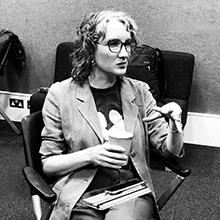Alison Phipps
Honorary Professor
Profile
Biography
The big ongoing questions for my work are around the relationships between heteropatriarchy, racial capitalism and gender-based violence, and how mainstream feminist theory and activism can divest from racial capitalism and become truly transformative.
My second book The Politics of the Body (published by Polity Press in 2014) covered several issues - sexual violence, sex work and reproductive justice - and argued that mainstream feminism around these was caught in a dialectic between neoconservative and neoliberal frameworks. My third book Me, Not You: the trouble with mainstream feminism (published by Manchester University Press in 2020) explores how mainstream feminism around sexual violence tends to pull the levers of oppressive systems rather than building alternatives. In addressing this, I’ve grounded established critiques of how class-privileged white women dominate feminism, in the social and cultural history of white womanhood. I argue, drawing on Black and abolitionist feminist theory, that mainstream feminism, in its focus on criminal punishment and institutional discipline, effectively treats Black and other marginalised people as disposable.
This analysis was shaped by my experience of being a scholar-activist in the movement around sexual violence against students since 2006. With NUS, I was involved in the first national survey of sexual violence against students and I led the report on ‘lad culture’ that helped catalyse a movement in this country. I’ve focused particularly on how this violence is framed by the neoliberal institution and in 2016 I co-founded the Changing University Cultures collective, which has conducted projects at several UK universities. I also co-led the pan-European Universities Supporting Victims of Sexual Violence project, which designed, piloted and evaluated disclosure training programmes for over a thousand staff in 21 different institutions in the UK, Spain, Greece, Italy, Latvia and Serbia. I’m now working on a new book called Personal Business: Sexual Violence in Racial Capitalism (again with Manchester University Press). This explores in depth what sexual violence does in the intersecting systems of heteropatriarchy, racial capitalism and colonialism. I argue that sexual violence enters the world along four vectors – threats, acts, allegations, and punishment – and these must be considered together if we want to understand why sexual violence occurs and how to stop it.
Publications
Selected publications
Phipps, A. 2024. “Holding on’ in a crisis: theorising campus sexual violence activism within precarious labour relations’, Feminist Theory (in press)
Phipps, A. 2023. ‘Tackling sexual harassment and violence in universities: seven lessons from the UK’, in Heike Pantelmann and Sabine Blackmore, eds., Sexualisierte Diskriminierung und Gewalt im Hochschulkontext. Erscheinungsformen, Umgang, Präventioon, 197-208. Berlin: Springer
Bendelow, G and Phipps, A. 2023. ‘Sociological approaches to the gendering of emotions in health and illness’, in Alan Petersen, ed., Handbook on the Sociology of Health and Medicine. Cheltenham: Edward Elgar Publishing
Phipps, A, and McDonnell, L. 2022. ‘On (not) being the master’s tools: five years of Changing University Cultures’, Gender and Education 34(5): 512-528
Phipps, A. 2021. ‘White tears, white rage: victimhood and (as) as violence in mainstream feminism’, European Journal of Cultural Studies 24(1): 81-93
Phipps, A. 2020. Me, Not You: the trouble with mainstream feminism. Manchester University Press, 214 pages
Phipps, A. 2020. ‘Reckoning Up: sexual harassment and violence in the neoliberal university’, Gender and Education 32(2), 227-243
Phipps, A. 2019. ‘The Fight Against Sexual Violence’, Soundings 71, 62-74
Phipps, A. 2019. ‘Every woman knows a Weinstein: political whiteness and white woundedness in #MeToo and public feminisms around sexual violence’, Feminist Formations 31(2): 1-25
Phipps, A. 2019. ‘Experience’, in Robin Goodman, ed., The Bloomsbury Handbook of Twenty-first Century Feminist Theory, pp143-158. London: Bloomsbury Press
Phipps, A. 2018. “Lad culture’ and sexual violence against students’, in Nancy Lombard, ed., The Routledge Handbook of Gender and Violence, pp171-182. London: Routledge (currently updating for second edition)
Phipps, A. 2017. ‘Sex Wars Revisited: a rhetorical economy of sex industry opposition’, Journal of International Women’s Studies 18(4), 306-320
Phipps, A, Renold, E, Ringrose, J and Jackson, C. 2017. ‘Rape culture, lad culture & everyday sexism: researching, conceptualizing & politicizing new mediations of gender & sexual violence’, Journal of Gender Studies 27(1), 1-8
Phipps, A. 2017. ‘Speaking up for what’s right: politics, markets and violence in higher education’, Feminist Theory 18(3): 357-361

